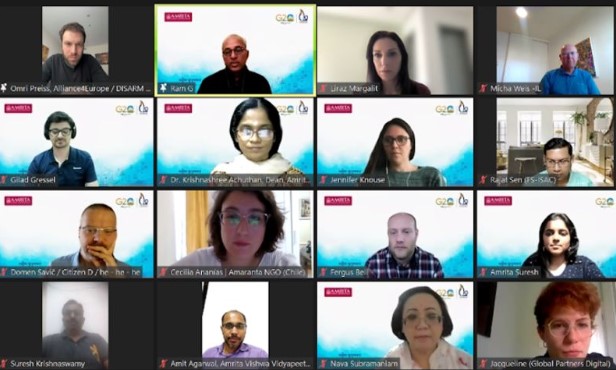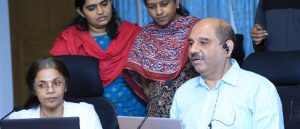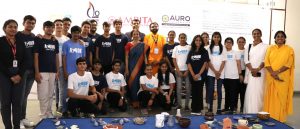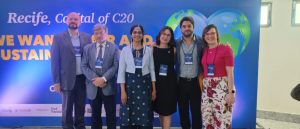The purpose of the above event is to convene international Civil Society Organizations (CSOs) and Non-Governmental Organizations (NGOs) to collaborate on the C20 working group for Technology, Security, and Transparency. The event seeks to highlight best practices, learn from experienced CSOs, and identify gaps in Transparency, Trust and Disinformation policies. The policy dialogue will contribute to the G20 process of recommending policies that represent the voices of civil society.
Why does this matter?
The above event matters because it brings together international civil society organizations (CSOs) and NGOs to contribute to the G20 process of recommending policies related to Transparency Trust and Disinformation. This policy dialogue is important because as the world moves towards a new age of automation and information-sharing over cyberspace, it is essential to consider the dangers of disinformation that is disseminated to the global civil population. The event aims to learn from experiences and opinions of CSOs, and their recommendations for policy-making in preventing the spread of disinformation. The recommendations and policy proposals resulting from this event can help shape international policies and practices related to Transparency Trust and Disinformation and ensure that they represent the voices and perspectives of civil society.
What was the reaction from the participants?
Ram Ganapathi introduced the Working Group and highlighted its significance as the first time since the inception of the C20 that a working group for Technology, Security and Transparency has been set up.
Dr. Liraz Margalit, Founder of Topicx, kicked off with the topic of behavioural change and design in the digital world, explaining from an evolutionary standpoint why humans engage in spreading disinformation.
Omri Preiss, MD of Alliance4Europe, shared successes in working with corporate partners to use cybersecurity frameworks to prevent disinformation and recommended looking into developing open-source language on disinformation behaviours to combat it.
Fergus Bell, CEO of Fathm, shared success in countering disinformation in fields like news and health, using social media monitoring to identify escalation points, then a “truth sandwich” – providing the fact, a warning about potential disinformation and then a fact again.
Jacqueline Rowe, Policy Lead at Global Partners Digital, shared successes in using digital tools to track government responses to online disinformation thereby promoting freedom of expression, and called for the G20 to provide more resources for rights-respecting organizations.
Cecilia Ananías Soto Ananías, Director of ONG Amaranta, spoke of their goal to eradicate digital violence and recommended generating policies that address the problems of dissemination of disinformation and monopoly on communications.
Rajat Mohan Sen, Regional Director at FS-ISAC, agreed on the importance of cybersecurity frameworks and common language to fight disinformation and recommended early-detection systems, a common space to share information and regulations to deal with misinformation appropriately.
Eliana Quiroz, Development Manager at Fundación InternetBolivia.org, highlighted complexities due to the number of local and global actors and the variety of platforms used in the spread of disinformation, calling for better efforts to understand the ecosystem to combat disinformation.
Domen Savič, CEO of Zavod Državljan D, highlighted the need for public procurement analysis to trace financial sources of disinformation campaigns and called for investigation and analysis of funders of such campaigns instead of receivers to combat disinformation.
Quynh Nguyen, Founder of CyberKid Vietnam, recommended having policies in place to protect children, database sharing amongst countries to prevent child exploitation, school-based approaches to equip educators and listening to children themselves as well.
Ram Ganapathi closed the session inviting all speakers and participants to the TST Summit on 13-14 May and requested all to share case studies of their successes for future policy recommendations.




